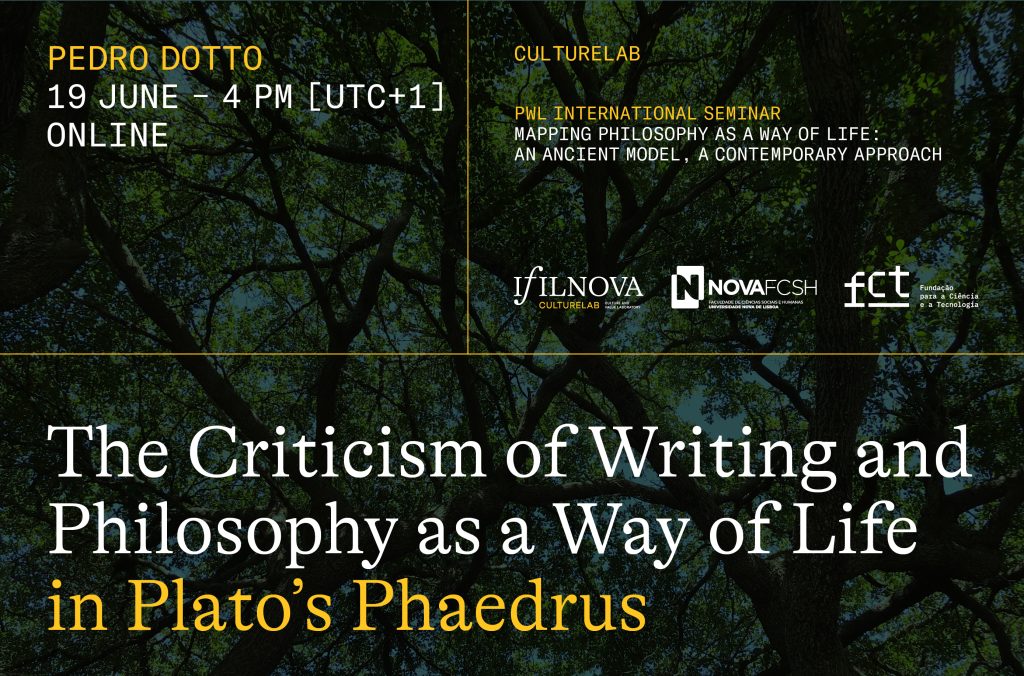Pedro Dotto
“The Criticism of Writing and Philosophy as a Way of Life in Plato’s Phaedrus”
June, 19 | 16h00 (UTC+1)
11h00 New York | 12h00 Brasília | 16h00 Lisbon | 17h00 Berlin | Other locations

Abstract
In this presentation, I shall argue that the criticism of writing in the Phaedrus (274b6-278e3) is intimately bound up with Plato’s conception of philosophy as a form of life and philosophical knowledge as recollection (anamnēsis). Both the criticism of writing and the teaching of recollection hinge on the insight that philosophical knowledge cannot be simply delivered from without but must be conquered and sustained by each soul from within. I shall demonstrate that Plato’s criticism of writing is also a criticism of reading and that the contrast between oral and written communication amounts to a difference in degree rather than in kind. This means that, according to the criteria outlined in the Phaedrus, the superiority of oral communication is not absolute or superlative, as some commentators might think, but relative or comparative. To adequately comprehend the criticism of writing, as I intend to show, one has to realize that doctrines, theses, theories, and arguments have a subordinate role vis-à-vis the living practice of philosophizing. Doctrines, insofar as doctrines, i.e., a compendium of propositions that can be externalized and objectified in logos (oral or otherwise), rely on the psychē that has first formulated them and that can justify, elucidate, clarify, defend, and if necessary, revise them. The philosophical form of life that the Socrates of Platonic dialogues symbolizes is prior in significance to any sort of doctrine (oral or written) and stands over and above the kind of knowledge that can be subsumed without any loss to logos.
Bio
Pedro M. G. Dotto defended his Ph.D. dissertation in Philosophy at the New School for Social Research (NSSR) in 2023. His doctoral dissertation undertook an analysis of Plato’s Phaedrus that delved into the motif of psychagōgía (soul-leading) as an interpretative key for understanding and unifying the dialogue. It was acknowledged with The Hans Jonas Award for Best Dissertation in Philosophy. Currently, he is a research fellow in the Graduate Program in Metaphysics at the University of Brasília (UnB) and serves as an assistant editor for reviews and coordinates the production process of the journal Archai. As the scholarship holder of the project “Mapping Philosophy as a Way of Life: An Ancient Model, A Contemporary Approach” (2022.02833.PTDC), he is currently making a research stay at IFILNOVA.
Registration required via email to mapping.pwl@gmail.com
